Episodes
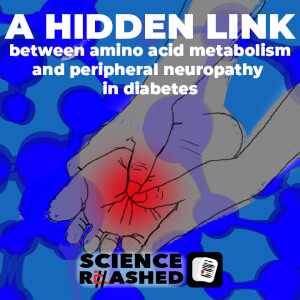
Friday Jun 16, 2023
Friday Jun 16, 2023
Peripheral neuropathy afflicts millions of diabetes patients around the world, causing sensations from tingling to pain to complete numbness. For our season finale, we discussed peripheral neuropathy with bioengineer Christian Metallo, whose recent research has uncovered how insulin-regulated metabolism of lipids and amino acids contributes to peripheral neuropathy. Dr. Metallo spoke with us about the inspiration for this research and explained his team’s key findings about the links between insulin, the amino acids serine and glycine, and peripheral neuropathy in diabetes patients.
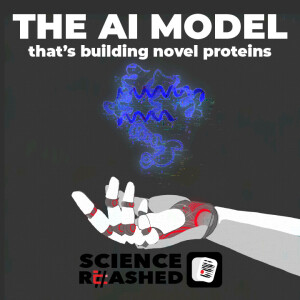
Wednesday May 24, 2023
Wednesday May 24, 2023
Proteins, with their unique structures, have evolved over billions of years to perform a host of different functions essential to the processes that keep us alive. Using the same principles as artificial intelligence chatbots, scientists at Salesforce developed an AI language model called ProGen. Using large protein databases, ProGen was trained on the biological syntax of amino acid sequences, allowing it to design functional 3D protein structures. These proteins have useful properties that may be leveraged in healthcare and biosciences. In this episode, we talk with Dr. Nikhil Naik, Director of AI Research at Salesforce, leading the team of scientists behind ProGen. We discuss the inspiration for ProGen, the implications of AI-generated proteins, and the future of protein engineering in light of ever-evolving biotechnologies. Music credits: “Summer Lofi” and “Summer Winds” by Rukudzo.
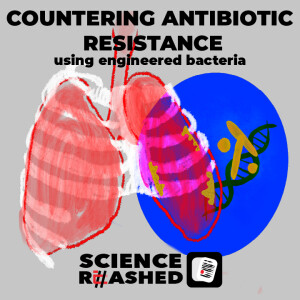
Wednesday May 03, 2023
Wednesday May 03, 2023
Respiratory infections are a major cause of mortality worldwide and pose unique challenges for healthcare interventions due to the antibiotic-resistant nature of many respiratory pathogens. For patients that require ventilation, an additional complicating factor is a protective substance produced by bacteria known as a biofilm. Biofilms can result in chronic infections, preventing the body and antibiotics from clearing the bacteria away. In this episode, we talk with Dr. Maria Lluch-Senar, a biotechnologist working with engineered Mycoplasma (a type of bacteria) with the aim of leveraging it to treat disease. She shares with us why Mycoplasma is a candidate for these interventions, how her lab modifies the organism, and the process through which these bacteria will help us more effectively treat other bacterial infections. Music featured in this episode includes excerpts from “Elevator Pitch” and “What’s the Angle” by Shane Ivers.
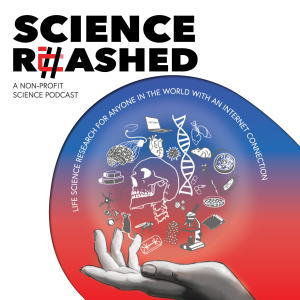
Wednesday Apr 12, 2023
Wednesday Apr 12, 2023
Have you ever had a wound that took a long time to heal? What if the bandage on your next wound could heal you faster by harnessing the power of your movement? Dr. Zong-Hong Lin and Dr. Snigdha Barman used their bioengineering expertise to create such a system. Their dressing uses embedded piezoelectric devices to convert the body’s motion into electricity, which powers multiple functions designed to overcome specific challenges of wound healing in clinical settings. The dressing, which can be worn continuously for several days, releases hydrogen peroxide to fight bacterial infection while using electrical stimulation to promote healing via cell proliferation, migration, and angiogenesis. We talked with Dr. Lin and Dr. Barman about the motivation for their work, the obstacles they overcame in developing their dressing, and the promises and challenges in its future application. This episode contains musical excerpts from “Drops of God” and “Dark Matter” by Rukudzo Kanyemba.
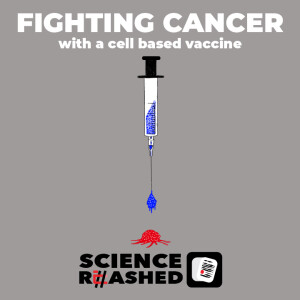
Thursday Mar 23, 2023
Thursday Mar 23, 2023
Vaccines have revolutionized modern medicine, preventing, and even eradicating devastating diseases worldwide. Vaccines leveraging emerging technologies in cellular engineering may lead a revolution in medicine again, starting in brain tumors. In this episode, we hear from Dr. Khalid Shah, a researcher at the forefront of such developments. Dr. Shah and his team are engineering brain tumor cells to create a treatment with direct tumor-killing effects, addressing incomplete tumor margins during excisional surgery. In addition to this direct effect, the treatment also stimulates the immune system to generate long-lasting anti-tumor activity, preventing future recurrence of the same tumor. Music Credits: “Shaolin,” “Inqusitive,” “Fire,” and “Kutapira” by Rukudzo.
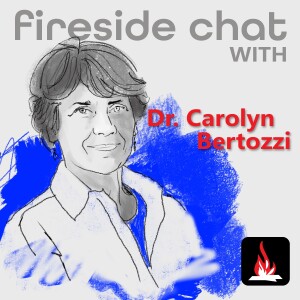
Wednesday Mar 01, 2023
Wednesday Mar 01, 2023
When chemist and Nobel Laureate Carolyn Bertozzi was leaving grad school, she asked her professors for letters of recommendation to pursue a postdoc in immunology. They warned her that she was flushing her career down the toilet. Instead, this was one in a series of opportunities that Dr. Bertozzi recognized and pursued, in a career that has changed the way modern chemists work. For this Fireside Chat episode, Dr. Bertozzi told us how she has made a career out of seizing opportunities in the face of pushback, institutional sexism, and the doubts of colleagues. We touched on her experiences finishing grad school without an advisor, building confidence as a young scientist, moving between disciplines, and launching biotech startups. We also talked about the importance of encouragement from friends and colleagues, the inside game of academia, the challenge of keeping a scientifically open mind, and of course what it's like to win a Nobel Prize and invite your dad to Stockholm.
This episode includes musical excerpts from “Nitrogen", "Half Mystery" and "Inspired" by Kevin MacLeod, and "Robots and Aliens" by Joel Cummins.
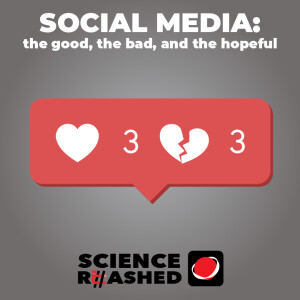
Tuesday Feb 07, 2023
Tuesday Feb 07, 2023
Social media has infiltrated our society more quickly than any other technological advancement. Kids today have access to endless content and social connections by way of the internet than the generations before them. What effect does a 24/7 connection have on our mental well-being? How does growing up in an age of social media affect our relationships and views of ourselves? In this 360 Perspective episode, we’re exploring the issues surrounding social media and mental health. First, Luisa Fassi tells us about her research on adolescent development and creating a sense of self online. Emma Fyffe opens up about how making a career of her online persona has affected her own mental well-being. Sean Kelley presents his work on algorithms that can identify mental health status from peoples’ language on social media posts. Finally, Dr. Ashley Knapp tells us about the digital tools her team is developing for youth to combat anxiety and how we can make these tools accessible and effective for all.
Music Credits: “The Bounce”, “Samba”, “Afrobeat Instrumental”, “Secret Sauce” and “Lofi for Mental Health” by Rukudzo
Helpful resources:
https://sites.northwestern.edu/ydmhlab/resources/
https://onemindpsyberguide.org/
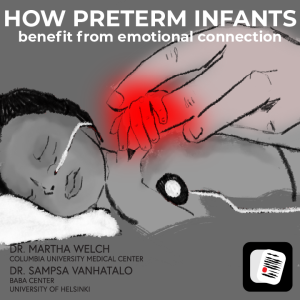
Wednesday Jan 18, 2023
Wednesday Jan 18, 2023
Varying by country, 5-18% of babies are born pre-term, putting them at risk of medical and developmental complications. While advances in care have greatly improved mortality outcomes for these infants, evidence-based interventions to improve neurodevelopmental outcomes have been more elusive—until now. In this episode, we interview Dr. Martha Welch, a pioneer in pediatric psychiatry, and Dr. Sampsa Vanhatalo, a leading researcher in infant neurophysiology, on their recent work demonstrating how a simple intervention can improve cortical networks and possibly normalize development in this vulnerable population.
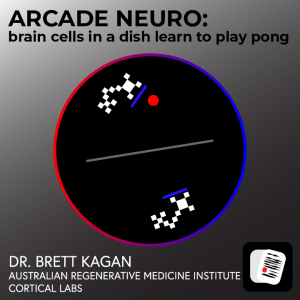
Wednesday Dec 28, 2022
Wednesday Dec 28, 2022
Have you ever picked up a video game for the first time and felt completely lost? After a few failed attempts, you surely got better and better each time. In the same way, we can learn how to play a game or use a new piece of technology, scientists at Cortical Labs are teaching brain cells in a Petri dish to play the 1970s arcade classic Pong. With electrical feedback stimulation, the cells can learn to move a virtual platform and volley a ball back and forth with impressive accuracy. In this episode, Dr. Brett Kagan, chief scientific officer at Cortical Labs, tells us how they developed the DishBrain. We discuss how predictable feedback enables neurons to exhibit goal-directed behavior, the question of sentience, and whether we might use synthetic biological intelligence as a medical tool in the future.
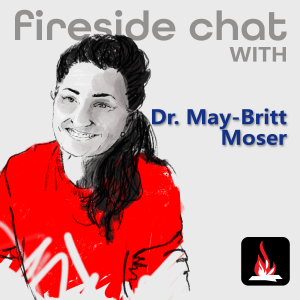
Wednesday Dec 07, 2022
Wednesday Dec 07, 2022
As a girl growing up on a remote island farm in western Norway, May-Britt Moser looked at the people and animals around her and wondered what was happening inside them, or in her words, “how the brain is generating behavior, memory, our cognition, our emotions”. Over four decades as a psychologist and neurologist, Dr. Moser has met with astonishing success in answering these questions, leading her team to remarkable discoveries of the neural mechanisms by which we mark time, form memories, and find our way around. In 2014 she was awarded the Nobel Prize in physiology or medicine for discovering the network of so-called grid cells that encode spatial information and enable navigation in humans and other mammals. We talked with Dr. Moser about her research and career; her reflections on science, tenacity, and gender; her analysis of how good science gets done; and (of course) the day she won the Nobel.


